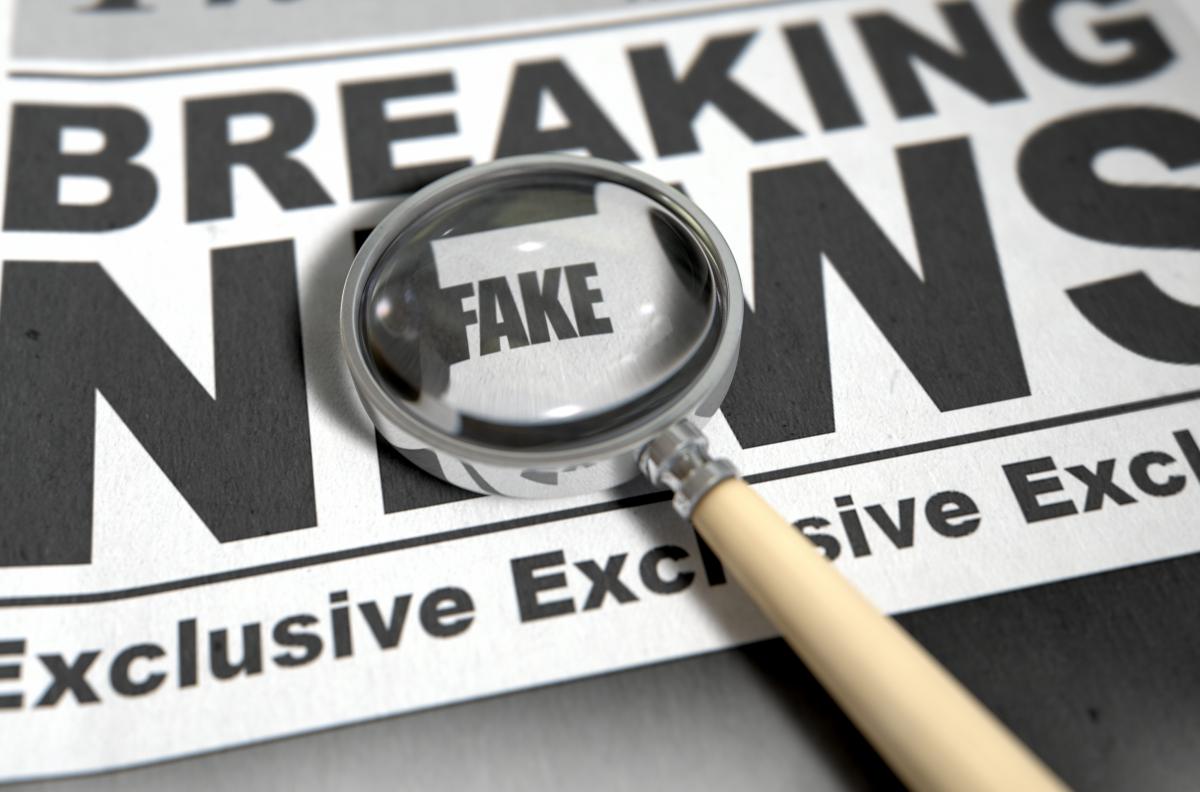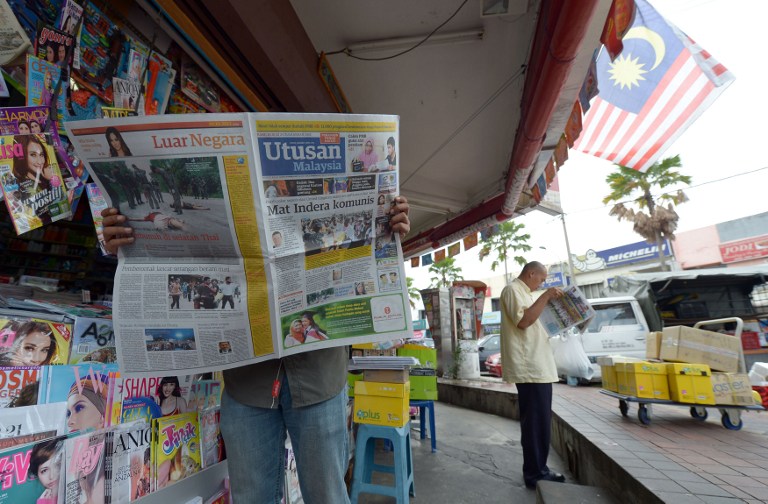5 Simple Ways To Self-Check All The GE14 Election News You're Reading
Always verify the information.
With the 14th General Election around the corner, there's an influx of information that we'll have to process and digest
In the midst of all that, readers can expect a lot of fake, unverified, and misleading information to pop up. These fake information and news stories can make it very difficult for people to form an opinion on issues, especially during the election period.
Which is why, as consumers of news, we need to find ways to determine whether what we're reading is true, not misconstrued, taken out of context, or worse, completely fake.
1. Assess the publisher's credibility
Who are the founders and owners of the site? Are they established individuals/organisations? Are they political? If yes, have they expressed their opinions on local issues in the past?
Browse the website. Read other articles written by the same publisher. Do the angles and headlines of these articles point to a certain direction that indicates the publisher's point of view?
Often, headlines and stories peppered with unnecessary adjectives are written that way to colour the perception of readers about an issue. This is fine, because publications pick angles and headlines that are meant to catch the reader's attention, but they're also supposed to accurately reflect the content of the story.
Answers to these questions will give you an idea on whether the publisher has a bias which may affect the content, i.e. leaving out inconvenient details or only providing half-truths.
Another thing to keep in mind is that news publishers won't be the only ones posting about election-related news and announcements. Political Facebook pages, individuals, and WhatsApp messages will also be circulating election-related information. Please verify them before sharing.
A reliable election news piece should offer as many available information on a particular issue.
2. Consider the sources mentioned in the election news and check the citations
This is the most important step when fact-checking election news or just news stories in general.
When publishing articles, it's vital for a publication to only report based on credible and trustworthy sources. If they do include an unverified piece of information related to an issue, it must be mentioned in the article that it has not been verified.
Check to see who was quoted in the article. Who are they and what do they say? Most election news articles are heavily quoted as information usually comes from the government, politicians, and other officials who have the authority to make the statements.
A simple example would be the announcement of the election date. Only the election commission and current ruling government have the knowledge and power to release a statement on when the election will be held.
The key to reviewing cited sources is the ability to differentiate between a legitimate information that comes from a reliable source and a rumour or unverified information.
You'd also need to read up and look up the cited sources to see if the information they've provided has been accurately applied and not altered in any way. Also, keep an eye out for doctored images. In the era of advanced technology, you can't always believe everything you see.
3. Read diversely
Don't just rely on one source or publication.
When in doubt, always google the election news and see what pops up on the Internet. Keep an eye out for reputable news sites and see if they're reporting on the issue.
Even if it's an exclusive or a scoop, it will almost always be reported by other sites after a while, especially if the news is important. Reading from various sources will offer you more information about an issue.
Say you read an article that says Prime Minister Datuk Seri Najib Razak announced that GST will be removed and it is accompanied by a quote from him.
An announcement like this will definitely be picked up by all local news publications and you should be able to find it on the PM's website or social media pages. If you don't see the information being reported anywhere else, go back to rule No. 2: check the sources.
4. Pay attention to the quality and timeliness of the article
If an election news article has errors and poor punctuation, read with caution. Reputable publishers and sources would have excellent editing, proofreading, and grammatical standards.
Always check the published date of an article. News pieces with provocative headlines may sometimes fail to mention that the news is not exactly new. Also know that publishers occasionally republish old articles if it's relevant to the current situation.
As a responsible reader and social media user, you'll need to check if the information is current or is just being recycled. Just because something is widely shared across social media channels like Facebook, Twitter, and Instagram, doesn't mean that the information is current and accurate.
5. Go through the comments section on social media
Almost all news publications share their articles on their official social media accounts but the Internet is also the place where fake news and misleading stories thrive.
If an election news article has a lot of engagement (shares, likes, retweets) and is not posted by a credible news site or source, then read the comments section.
Are a lot of the comments calling out the article or information for being fake or misleading? If you see a pattern of that, then you should probably analyse the comments to see if they are just out to discredit the report or there are actual inaccuracies in the news.
Social media users sometimes even debunk fake news in the comments section by posting information from reliable sources that say otherwise.
However, do be mindful of comments that shout "fake news".
Fake news refers to false information, sensationalised report or propaganda that is created under the guise of being authentic news to mislead and deceive readers.
In some situations, the readers may just be disagreeing with what is reported or pointing out that there is a discrepancy in the information in the article. This is where the 'check the sources and citations' step comes into play.
While spotting fake news is crucial, throwing the term around loosely without doing your homework could cause unnecessary panic.
The most important thing is to NEVER spread unverified information. It only causes confusion and adds to the rumour mill.
Share responsibly!





